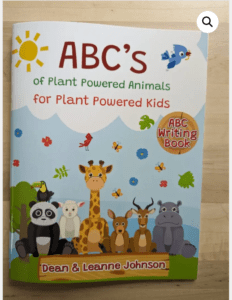Everyday Problems Parents Encounter, Raising Their Child on a Plant- Based Lifestyle
Many parents would like to raise their children adopting a plant-based lifestyle, acutely aware of how the meat and dairy industries are partly responsible for accelerating climate change and increasing the poor health in our children, as this study by (Heck et.al, 2014) highlights Food choices, health and environment: Effects of cutting Europe’s meat and dairy intake. Circumstances to consider; from a positive perspective:
- There is a growing number of parents adopting a plant-based lifestyle for their children; according to University of Michigan Food Savvy Friday: Navigating a Vegan Lifestyle – Maize & blue cupboard there has been a 600% increase in people adopting a plant-based lifestyle in the last 3 years
- Children learn to become compassionate and aware animals are not objects for humans to use solely for our benefit
- Animals including fish are sentient beings who feel pain, form maternal bonds, as well as bonds with humans and feel emotions (sad, crying)
- Animals (livestock) are not “dumb”; they are able to play, solve problems, and form friendships with us and each other, and other animals
With this in mind, what challenges and judgements from others do parents face?
- Mainstream implications to consider?
- Balanced eating/food intake
- Finding recipes your child enjoys
- Viewpoint that plant-based foods lack of taste/bland
- Perception that a plant-based diet is lacking in essential nutrients, inhibiting a child’s development. The vitamins and nutrients commonly are;
- Vitamin D
- Vitamin B12
- Calcium
- Iron
- Omega-3 fatty acids
- Protein
- Not sharing you and your child’s preference to follow a plant-based lifestyle, due to being judged or shamed, in the belief a child will be nutrient deficient; as the research suggests, this is not the case. Suggested groups you should share your dietary preferences with;
- Immediate family
- Primary care doctor
- Registered Dietician for nutritional advice and guidance
- School or pre-school
Parents choose not to share food preferences, mainly due to skepticism, judgment and individuals against a plant-based lifestyle. Remember you as the mother, father or guardian are not the only parents experiencing these obstacles.
Stay Rooted!
Plant Powered Playhouse
References
- Raising Children on a Vegan Diet: Parents’ Opinion on Problems in Everyday Life.
Bivi, D., Di Chio, T., Geri, F., Morganti, R., Goggi, S., Baroni, L., Mumolo, M. G., de Bortoli, N., Peroni, D. G., Marchi, S., & Bellini, M. (2021). Raising Children on a Vegan Diet: Parents’ Opinion on Problems in Everyday Life. Nutrients, 13(6), 1796. https://doi.org/10.3390/nu13061796
- Food choices, health and environment: Effects of cutting Europe’s meat and dairy intake
Westhoek, H., Lesschen, J. P., Rood, T., Wagner, S., De Marco, A., Murphy-Bokern, D., Leip, A., van Grinsven, H., Sutton, M. A., & Oenema, O. (2014). Food choices, health and environment: Effects of cutting Europe’s meat and dairy intake. Global Environmental Change, 26, 196–205. https://doi.org/10.1016/j.gloenvcha.2014.02.004
- Food Savvy Friday: Navigating a Vegan Lifestyle
University of Michigan. (2020, November 3). Food Savvy Friday: Navigating a Vegan Lifestyle. Maize & Blue Cupboard. Retrieved January 3, 2023, from https://mbc.studentlife.umich.edu/2020/11/06/food-savvy-friday-navigating-a-vegan-lifestyle/












